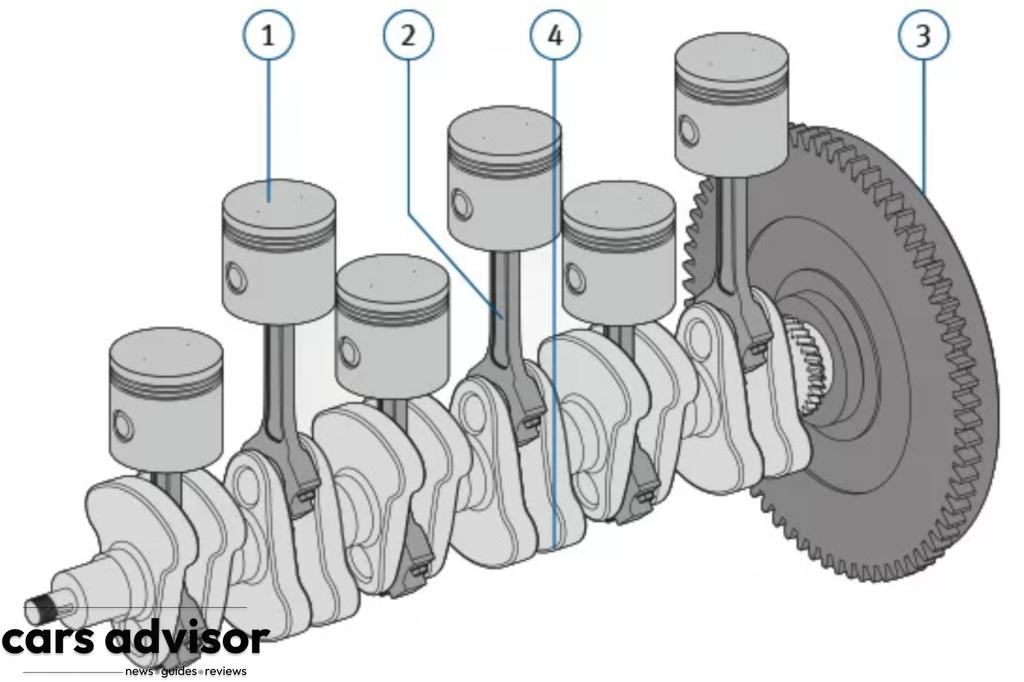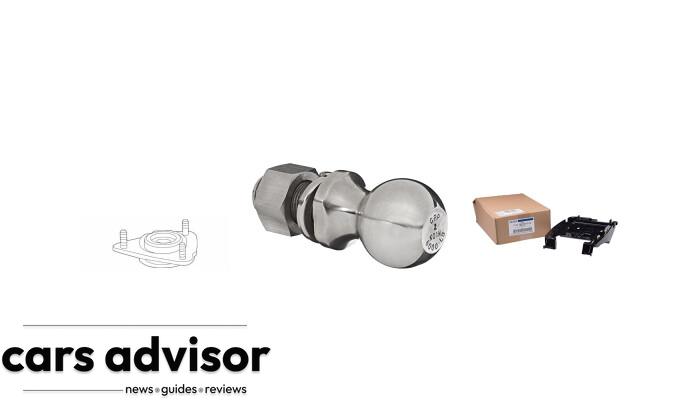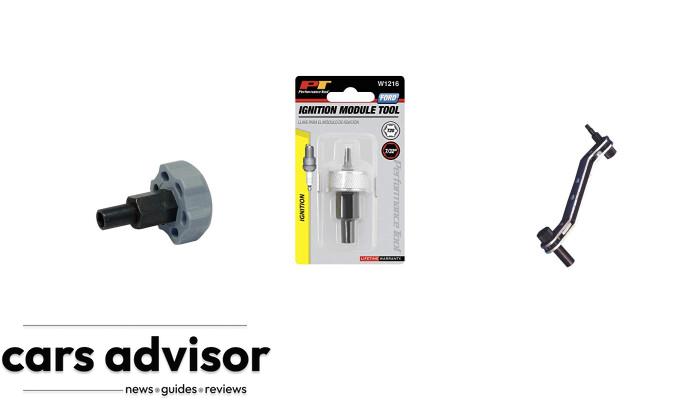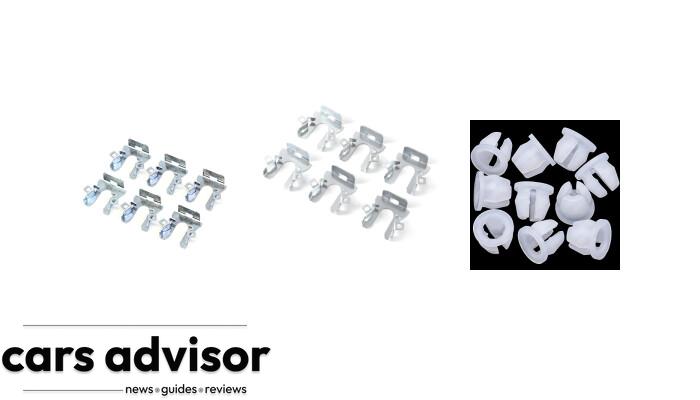Understanding The Role Of Flywheel In Automatic Transmission
The flywheel is a critical component of the automatic transmission system that stores energy and helps maintain smooth engine operation by balancing the power from the engine to the gearbox.What Is A Flywheel?
A flywheel is an essential component of the engine system in a vehicle, including those with automatic transmissions. It is a rotating mechanical device that stores kinetic energy and helps ensure smooth operation by maintaining consistent momentum between combustion forces and gear shifts. The flywheel is the connection point between your vehicle’s engine and its transmission. In vehicles with manual transmissions, the flywheel has teeth around its circumference that engage with the starter motor to start the engine.
In contrast, automatic transmission vehicles have a flexplate that is a mounting location for torque converters and provides similar functionality to a flywheel’s teeth.
Thus, it plays another key role in efficiently transferring power from the engine to the gearbox while reducing vibrations during gear transitions. By doing so, this component contributes significantly to enhancing overall driving comfort and performance.
In vehicles with manual transmissions, the flywheel has teeth around its circumference that engage with the starter motor to start the engine.
In contrast, automatic transmission vehicles have a flexplate that is a mounting location for torque converters and provides similar functionality to a flywheel’s teeth.
Thus, it plays another key role in efficiently transferring power from the engine to the gearbox while reducing vibrations during gear transitions. By doing so, this component contributes significantly to enhancing overall driving comfort and performance.
How Does It Impact The Automatic Transmission System?
The flywheel is a crucial component of the automatic transmission system since it connects the engine and the transmission. The flywheel maintains smooth gear changes, controls vibrations, and improves performance. It helps to store kinetic energy from the engine, which keeps it running smoothly at low RPMs while also helping to balance out any irregularities in power delivery. A faulty flywheel can cause serious damage to other components of the automatic transmission system, such as worn-out or damaged teeth that can lead to slipping gears or difficulties changing gears.
For instance, when you start your car with a bad flywheel on an automatic transmission, unusual vibrations or noises could come from underneath your vehicle’s undercarriage.
These symptoms indicate a problem within your car’s internal workings and require immediate attention before causing irreparable damage.
Likewise, when accelerating from rest with a bad flywheel on an automatic transmission – this could result in difficulty shifting gears due to clutch chatter or drag caused by worn-out parts within the gearbox.
A faulty flywheel can cause serious damage to other components of the automatic transmission system, such as worn-out or damaged teeth that can lead to slipping gears or difficulties changing gears.
For instance, when you start your car with a bad flywheel on an automatic transmission, unusual vibrations or noises could come from underneath your vehicle’s undercarriage.
These symptoms indicate a problem within your car’s internal workings and require immediate attention before causing irreparable damage.
Likewise, when accelerating from rest with a bad flywheel on an automatic transmission – this could result in difficulty shifting gears due to clutch chatter or drag caused by worn-out parts within the gearbox.
Symptoms Of Bad Flywheel On Automatic Transmission
If your vehicle is experiencing difficulties starting, unusual vibrations or noises, clutch slipping or dragging, engine misfires or stalling, and difficulty in gear shifting, it could be because of a bad flywheel on the automatic transmission. Read on to learn more about the causes of a bad flywheel, its replacement cost, and prevention and maintenance tips to avoid flywheel issues.Difficulties In Starting The Vehicle
One of the symptoms of a bad flywheel on automatic transmission is difficulties in starting the vehicle. When you turn on the ignition and hear grinding or clicking noises, it may indicate that your flywheel is failing. This issue prevents the starter from engaging properly, making it difficult for your engine to start. Another sign of a faulty flywheel is when you need to hold down the clutch pedal while starting your car. This symptom occurs because the starter motor doesn’t generate enough force to overcome the friction between the clutch and pressure plates. A damaged flywheel can cause slow or hesitant cranking when starting your car. Suppose you’re experiencing any issues with starting your vehicle. In that case, it’s important to have it checked immediately by a professional mechanic, as they can diagnose and repair any problems before they worsen.Unusual Vibrations Or Noises
A bad flywheel on an automatic transmission can cause unusual vibrations or noises in your car. These vibrations and noises are often caused by the misaligned or warped flywheel, which disrupts the smooth flow of power to the gearbox. You may notice these symptoms while driving, such as when you try to shift gears, accelerate or slow down. When depleting or releasing the clutch pedal, one common sign is a rattling noise. Damaged teeth cause this sound on the flywheel, preventing it from correctly engaging with other transmission system components. Also, when you engage the starter motor to start your vehicle, abnormal noise may come from underneath, indicating a problem with your car’s flywheel. Anytime you hear strange sounds while operating your car, you must seek professional help immediately before things worsen. In conclusion, if your vehicle has unusual vibrations or noises from beneath its hood/side undercarriage region, it could indicate flywheel problems affecting your automatic transmission system. The sooner you address these issues, the better for maintaining optimal performance levels and ensuring road safety!Clutch Slipping Or Dragging
Another common symptom of a bad flywheel is clutch slipping or dragging. This happens when the clutch doesn’t fully engage with the flywheel, causing the car to slip or jerk during acceleration. It’s often accompanied by burning smells and vibrations in the pedals. Clutch slipping can be hazardous, especially if you’re driving on busy roads, as it may cause sudden deceleration or even loss of control. On the other hand, clutch dragging occurs when the pedal doesn’t disengage fully from the clutch disc when you release it. This can make shifting gears harder and cause grinding noises from your transmission. If you notice any irregularities while pressing down on your pedals while shifting gears, take your vehicle for inspection immediately to diagnose what could be a failing flywheel. In serious cases where there’s already significant damage to both components (flywheel and Clutch), replacement may be necessary to prevent further issues that might affect other parts of your automatic transmission system quickly, leading to more costly repairs later on.Engine Misfires Or Stalling
Another symptom of a bad flywheel on automatic transmission is the engine misfiring or stalling. When the flywheel becomes damaged or worn out, it can imbalance the rotational forces within the engine. This can cause misfires and stalls, especially when stressing the clutch to shift gears. You may also notice that your car struggles to maintain power or speed during acceleration. These issues often indicate a failing flywheel and require prompt attention from a professional mechanic. Ignoring these symptoms can result in serious damage to your vehicle’s engine and transmission system, leading to costly repairs down the road. If you suspect your car may have a bad flywheel, it’s important to take action immediately by seeking help from an experienced automotive service provider.Difficulty In Gear Shifting
Another symptom of a bad flywheel on an automatic transmission is having difficulty shifting gears. You may notice that your car struggles to change gears or feels slow to respond when you try to shift. This can make driving frustrating and even dangerous in some situations. The clutch system engages and disengages the engine’s power from the transmission, allowing gear changes to happen smoothly. However, if the flywheel is damaged or worn out, it can affect how well the clutch operates, creating issues with shifting gears. If you experience this issue, having your vehicle inspected by a professional mechanic as soon as possible is important. Ignoring difficulty in gear shifting caused by a faulty flywheel could lead to more significant problems. In extreme cases, it could cause your car’s transmission to fail- resulting in costly repairs or needing a complete replacement. Regular maintenance and inspections are essential in preventing these kinds of problems from occurring.How Does a Bad Solenoid Affect the Flywheel on an Automatic Transmission?
When a solenoid in an automatic transmission malfunctions, the symptoms can be evident. One of the crucial components affected by a bad solenoid is the flywheel. The flywheel’s role is to transfer torque between the engine and the transmission, ensuring smooth gear changes. If a solenoid malfunctions, it can cause gear slippage, delays in shifting, or even the transmission not engaging correctly with the flywheel. These symptoms of a malfunctioning solenoid can lead to various issues with the flywheel’s function, impacting the overall performance of the automatic transmission.
Causes Of A Bad Flywheel And Replacement Cost
Several potential causes of a bad flywheel include normal wear and tear, poor maintenance, faulty manufacturing, or a misaligned or warped flywheel. The cost to replace a bad flywheel can vary based on the make and model of your car, but it’s important to promptly address any issues before they become more costly in the long run. Keep reading to learn about preventative measures to avoid flywheel issues altogether.Normal Wear And Tear
One of the most common causes of a bad flywheel on automatic transmission is normal wear and tear. Over time, the constant friction and pressure on the flywheel can cause it to become misaligned or warped. This can lead to clutch slippage, difficulty shifting gears, and unusual vibrations or noises. Regular vehicle maintenance can help prevent these problems from occurring due to normal wear and tear. This includes regularly changing transmission fluid, checking for unusual symptoms while driving, and getting routine check-ups from a trusted mechanic. By avoiding potential issues with your transmission system, you can prolong the life of your flywheel and avoid costly repairs down the line.Poor Maintenance
Poor maintenance is one of the leading causes of a bad flywheel in automatic transmissions. Failing to conduct regular vehicle check-ups and maintenance tasks can cause dirt, grime, or debris buildup on the flywheel’s surface or teeth. This increases friction that wears down the flywheel much faster than normal wear and tear. As a result, the damaged flywheel can cause slipping gears, clutch vibrations, and engine stalling problems. Another issue with poor maintenance is neglecting prompt repairs of other parts connected to the flywheel system, such as the gearbox, transmission fluid or filter, torque converter or starter motor. A failing component in any of these systems may contribute to severe damage to your car’s flywheels, making it essential for you to keep all aspects associated with your car in good working condition through regular inspections by an automotive service provider. In conclusion, Poor maintenance contributes significantly to bad flywheels in automatic transmissions, eventually leading to costly repairs if not promptly addressed. Regular vehicle check-ups and preventative measures such as removing oil residue caused by oil leaks would help avoid experiencing issues related to faulty bearings, usually when proper cleaning has been neglected over time resulting from poor maintenance practices.Faulty Manufacturing
Another cause of a bad flywheel can be due to faulty manufacturing. In some cases, the flywheel may have been made with inferior quality materials or not manufactured to the correct specifications, which could result in premature wear and tear. This can affect how well the vehicle starts and shifts gears. It is important for car manufacturers to adhere to strict standards during production to ensure their components are durable and efficient. Faulty manufacturing of a flywheel can lead to serious issues down the line, causing unnecessary costs for repair or replacement. It’s crucial for drivers who suspect they may have a bad flywheel due to faulty manufacturing to get it inspected by a professional mechanic promptly. In addition, if you know that your car has experienced any impact or accident that could damage its mechanical components, inspect all elements of your transmission system – including the flywheel – as failing parts could put you and other passengers in danger while driving on roads at high speeds.Misaligned Or Warped Flywheel
A misaligned or warped flywheel is another common cause of a bad flywheel on automatic transmission systems. Over time, the flywheel can become distorted due to excessive heat and pressure. This can lead to clutch vibrations, gear slippage, and difficulty changing gears. If the flywheel is misaligned or warped, it may also cause burning smells and unusual noises from the transmission case. In severe cases, the teeth on the flywheel may become damaged or worn out, which can further damage other parts of the transmission system. To prevent this issue from happening, it’s essential to have your vehicle checked regularly by a professional mechanic. They will be able to identify any potential issues with your flywheel before they become more serious problems that require costly repairs or replacement. Additionally, ensure you always use high-quality parts designed specifically for your vehicle’s make and model. By taking these preventative measures and promptly addressing any issues, you can ensure that your automatic transmission stays in good shape for years.Replacement Cost And Process
If you suspect your automatic transmission’s flywheel is bad, you should immediately take action to avoid further damage. Replacing a faulty flywheel is not cheap and can vary depending on the make and model of your car. The replacement process typically involves removing the transmission to access the flywheel. Then, the old flywheel will be removed, and a new one will be installed. Replacing a faulty flywheel can range from $500 to $1500 or more for high-end vehicles. Labour costs can also add up since this type of repair requires significant parts dismantling in your engine’s undercarriage area. It’s essential to seek professional assistance when replacing your vehicle’s flywheel, as it is a complex process that requires special expertise and tools. To avoid costly repairs like this in the future, it’s crucial to keep up with regular maintenance checks on your vehicle. This includes checking for early signs of wear and tear on all critical components, such as gears, clutches, torque converters, gearboxes, shift solenoids, and hydraulic systems that contribute to smooth operation between them. Keep track of any unusual sounds or vibrations from under the hood; these are often indicators that something is not quite right with your car’s internal mechanisms.Prevention And Maintenance Tips To Avoid Flywheel Issues
To prevent flywheel issues in the future, it’s important to regularly check and maintain your vehicle, promptly address any problems, and seek professional assistance when needed. Keep reading to learn more about how to take care of your automatic transmission and avoid costly repairs.Regular Vehicle Check-up And Maintenance
Regular vehicle check-ups and maintenance can help prevent flywheel issues in automatic transmissions. Here are some tips to keep your vehicle well-maintained:- Follow the recommended maintenance schedule provided by the manufacturer or your mechanic.
- Check the transmission fluid regularly and replace it as needed.
- During routine maintenance checks, inspect the flywheel for damage, warping, or misalignment.
- Have a professional inspect the starter motor and clutch system regularly.
- Address any issues immediately to prevent further damage to the flywheel or other transmission components.






















